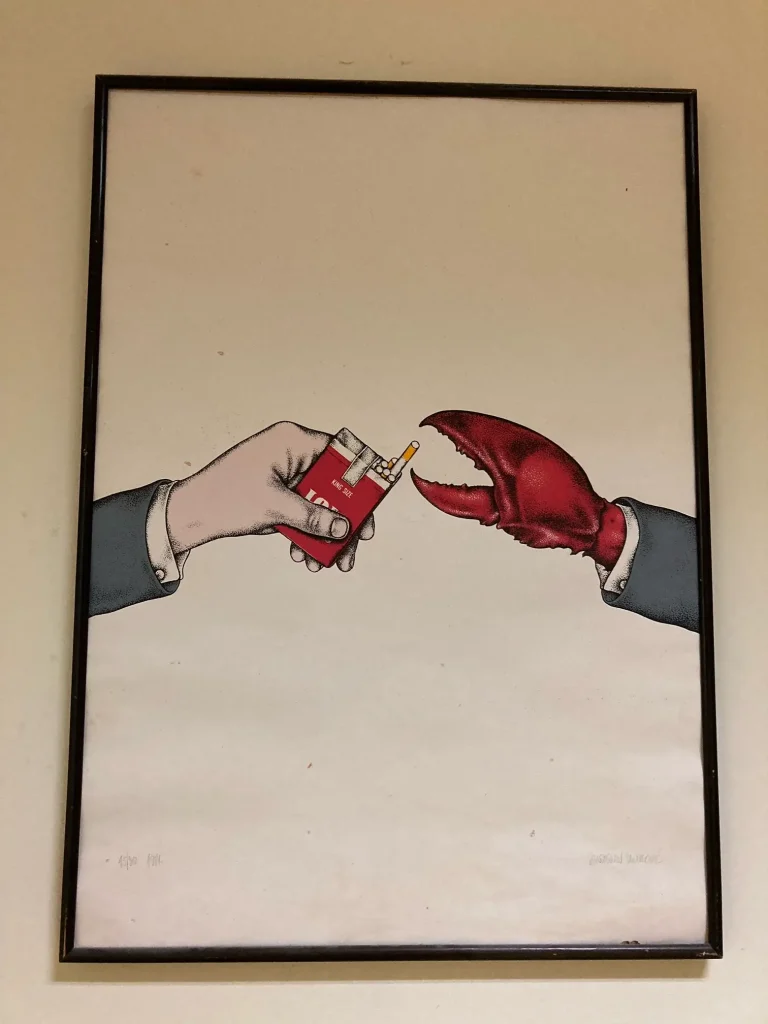Back in 2006 when I went into anaphylactic shock in Zagreb due to allergies I was unaware I had, hitna pomoć (the emergency services) arriving when they did and not a minute later meant that I could keep breathing and can now sit and write about it. I depend on HZZO (the Croatian Health Insurance Fund) for access to my medication, I’ve had four surgeries, and countless tests and consultations have taken place in between. I joke that having to juggle several chronic conditions has turned me into a professional patient.
Over the past 18 months, besides my GP and dentist, I needed to see a gynaecologist, a urologist, a gastroenterologist, a pulmonologist, an otorhinolaryngologist, a psychiatrist, a neurologist and an anaesthesiologist. It was a particularly tough time in which my body decided to just go into self-destruct mode. I got through it, but came out with my eyes more open than ever before having witnessed how devastating relying on a system that is so wrongly neglected can be.
General practitioners – a journey that began 19 years ago
I took my first GP for granted. I remember how my allergies were the first thing listed on my “karton” (medical file) in capital letters and highlighted so that nobody could get it wrong. She was considerate and noticed symptoms I didn’t even complain about. I was safe with her. Later she retired and I moved away from Zagreb.
My second GP was a different story. She’d prescribe me medication during consultations and then pause to ask me, “What are you allergic to again?” This made me worry enough to check the ingredients on all prescribed medication before taking anything. Once she prescribed a pill which those suffering from asthma were (strongly) advised not to take. The second time she gave me a tablet which she reassured me didn’t contain any ingredients I was allergic to. I went home, I took it, then minutes later my eyes started burning and my airways tightened up. It wasn’t bad enough to go to make me go to the emergency room, but I did make a firm decision to change my GP after that. My criterion wasn’t to find a doctor who cares, only one who wouldn’t accidentally kill me.
Good GPs are hard to come by. If you’re lucky enough to land one, you should expect that you’ll end up needing to wait a while for consultations and they will be hard to get a hold of via phone. If you have time, it’s okay. Otherwise, people save themselves the frustration by opting for ”okay enough” doctors or simply paying out of pocket.
The deeper you dive, the murkier the water gets…
It may all look great if you’re generally healthy and only need a doctor for the occasional infection or unfortunate accident. I’ve read accounts from foreigners needing to go to the emergency services at the hospital and coming out praising the treatment they receive. Yeah, but… Go there three or four times, hand the technicians at the porta a local name, then sit and wait, and boy will you wait.
I once sat at the ER for hours whilst an older woman kept screaming in complete anguish on the other side of the door. “Ajmeeeee! Ajmeeee! Ajmeee!” (“Ajme!” means “Oh my!”) I couldn’t see her nor in any way know what the problem was, but her pain reverberated through all of us sitting there in the waiting room. We could hear and occasionally see medical personal shuffling around her but clearly nobody was offering this woman comfort. Instead, business went on as usual. After a day spent at the hospital, doing a run around and some tests, I got up and left before I saw a doctor. The psychological strain of hearing that poor woman scream for hours on end was more painful than the physical pain and distress I was feeling. “I’d rather die at home than be here,” I thought.
I’ve had a dental technician dig in my mouth without gloves for an x-ray. A filling gone wrong resulted in the loss of a tooth…
Last year I went to see a specialist, the head of his department. I entered while he was on his mobile phone in a private conversation. I sat in front of him for fifteen minutes, without him even acknowledging my presence with so much as a gesture for me to wait, before he decided to start the consultation.
A routine gynaecological exam
Gynaecological exams are uncomfortable at best. You just want it over with. I once arrived for an appointment to find that my regular doctor wasn’t there and the nurse proceeded to tell me that she was not returning. There was a substitute doctor in her place (most of my unexpected bad visits happened with subs I didn’t plan to see).
I went into my usual routine of undressing, getting into position, closing my eyes and waiting for it to be over. I noticed that it was strangely painful for a routine check-up (the most painful thus far) so I looked down. I was horrified that this man was “down there” and not wearing a mask. This was in the middle of the pandemic when we were still wearing masks everywhere and not just at the clinic. He didn’t give me any feedback so I waited and then asked him if everything was okay. Affirmative. We spoke about medications and I explained my allergies to him. This part was the cherry on top: He prescribed a medication with an ingredient I am allergic to.
I hear more and more women say they go to private gynaecologists following bad experiences in the system.
The coronavirus crisis
Both my husband and I are asthmatic. When asthmatics were included on the government list of high risk patients to be among the first to receive COVID-19 vaccines, I called to place us on the list.
“Where do you live?” The operator asked.
“Janjina.”
“Okay. We’ll notify you when the vaccine becomes available to you.”
Weeks passed and I heard about other chronically unwell patients already receiving their booster shots in other parts of the country. Could it be where we live?
As it turned out, yes. We were listed in the system as residents of our village and would therefore be notified when the vaccines would become available here. Before that happened we contracted COVID-19 and developed a more severe clinical picture which almost landed me in the hospital and took months for both of us to recover from. Had somebody told me to ask to be listed under ”Dubrovnik” and we would have made it onto the list and simply taken a 1.5 hour drive for our vaccines. I don’t blame the operator. I blame an ineffective system.
Finding a good doctor
Najdoktor.com features doctors with ratings and reviews by patients. It has become my first step in finding new doctors. I won’t accept a rating of less than four stars, and only due to waiting times and personnel, otherwise I want five stars. Anything below that and you’re taking a risk. Unfortunately not all doctors are listed, especially those in rural areas and smaller towns and cities.
The current situation is an unfortunate side effect of Croatia’s brain drain. When I’m lucky enough to get to a very good doctor and they’re still young, panic sets in as I wonder if they’ll decide to go work abroad at some point. If they’re reaching retirement age I panic because I know how difficult they’ll be to replace. Our choice, especially in rural areas, is not between good, okay and bad doctors; it is sometimes only between bad doctors who will mostly make okay decisions and no doctor at all. The reality is that okay decisions still save lives (let’s not talk about the bad ones).
Money keeps you alive and where you live matters
I used to be able to depend on the Croatian healthcare system for all my healthcare needs. This has become impossible, so now I’ve switched to a system of prioritising. If it’s high on the priority list, I’ll pay. If it’s not so urgent then I’ll wait my turn in the system. It’s a juggle in which every element is crucial because I couldn’t possibly pay for everything out of pocket.
I was extremely reluctant to start paying for anything because I was unwilling to let go of the ideal that healthcare is a human right afforded to all citizens. For years I believed that ideal to be a reality in Croatia because I lived it. In most cases I’m paying for speed and not better care. Many of the doctors who work privately come from the public sector so you won’t be seeing a better doctor; just you’ll get to see them sooner.
Your options if you require a brain MRI, for example, are to either wait ten months (or four months if your doctor says it’s urgent) or get it done the next day if you’re willing to pay 240 euros privately. It could be devastating if you don’t have the months or the euros at hand.
I also find that people are making more and more trips to Zagreb. There is a bigger pool of doctors and hospitals, making it much easier to get what you need. The other thing that helps, as with all things in this place, is “veze”, otherwise known as connections. If you know the right person you can get to what you need sooner without paying.
In an ideal world
I’d like doctors to look me in the eyes when they meet and examine me, not stare straight at the screen and start typing as I speak. I’d like more authentic listening and practical solutions and fewer prescriptions. I’d like to leave the hospital feeling like a recognised human being and not one of thousands that nobody noticed. Unrealistic? I don’t think so. But it may be a thing of the past.
I get that doctors have to switch off to stay sane. If they were to invest emotions into every patient they wouldn’t make it or be able to work. It makes sense. However, I feel that a system that is increasingly forcing people to switch off is a clear sign that it is broken for them too.
Where are we headed?
The Croatian healthcare system as it is creates an unhealthy environment for patients, doctors and all personnel. Healthcare workers are primarily accountable to the system that employs them, leaving us all to have to navigate through its obscure web to get anything done. We need healthcare practitioners to be accountable to us first, the patients whose wellbeing is in their hands.
The problem has been present in the media for years. I’ve been following it in the Dubrovnik region in particular. I always find it funny that reporters mostly interview senior citizens when they pose questions to the public about healthcare. Baka or djed (grandmother or grandfather) will tell you that doctors are not as good today as they used to be and we have a big problem. We nod our heads and perhaps even roll our eyes because they say that about everything. For as long as you’re healthy, this is probably a normal reaction. As a “young” person struggling through this system I want to point out that they are not exaggerating and the stories I hear from other chronically ill patients confirm my worries.
I don’t know if it’s going to get better. The way I see it is that if you want the equivalent quality of care compared to what you could get in this country ten to fifteen years ago through state-funded health insurance, then you’ll have to pay for it today. Medical tourism will likely fuel this as more foreigners will be willing to pay what for them is a low rate and good doctors will be incentivised to leave the public sector.
Nevertheless, having the good doctors remain in Croatia although in the private sector is better than losing them altogether to emigration. I hope we can save this system and fix the cracks; otherwise Croatia will increasingly become a place where a person’s paycheque dictates their access to healthcare.
For more, check out our lifestyle section.










